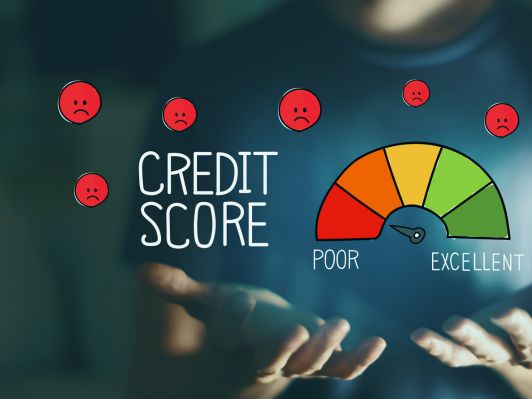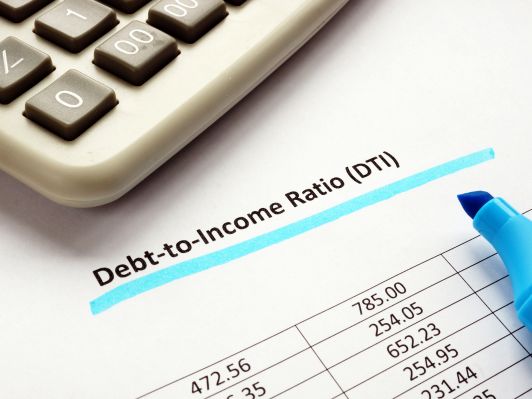Are you wondering “Why Can’t I Get a Loan?” If you’ve been rejected for a loan, you’re not alone. There are various factors that can impact your ability to borrow money from lenders. But don’t worry, there are alternative options available, and this article will explore them in detail.
Whether you have a poor credit history. A low income. Or are unemployed. There are solutions to help you get the funds you need.
Table of Contents
Why can’t I get a loan in the UK?
Getting a loan in the UK can be difficult if you have a poor credit history. A low income. Or a lack of collateral. Lenders typically require applicants to meet certain criteria. Such as a good credit score and steady income, to minimise risk.
However, there are options available for those with a bad credit score, such as bad credit loans or guarantor loans.
What factors affect your ability to get a loan?
Understanding the factors that affect your loan application can help you address your specific situation. It can also improve your chances of finding a suitable loan. Let’s dive into some common reasons behind loan application denials.
In addition to your credit score, there are other factors that lenders consider when deciding if to approve your loan application. These include:
1. Your credit score is too low

One of the most common reasons for loan rejections is a low credit score. Your credit score is a measure of your creditworthiness, and lenders use it to assess the risk of lending to you. If you have a bad credit rating then it indicates that you may have a history of missed payments. Defaulting on loans. Or a high level of debt.
Solution: To improve your credit score, make sure to pay all your bills on time. Reduce your debt-to-income ratio. And avoid applying for too much credit at once.
2. Inconsistent or low monthly income

If you are not in a stable job with regular monthly income. Or you have a low income. Then you might not get approved for a loan. Lenders always make sure that you have a steady and reliable source of income to see if you can repay your loan.
If you have a low monthly income or inconsistent income, then your loan application might not get approved.
Solution: You can improve your chances of loan approval by finding ways to increase your income or by showing a stable employment history.
3. High debt-to-income ratio

Your debt-to-income (DTI) ratio is a measure of your monthly debt payments compared to your monthly income. If you have a high DTI ratio, then it shows that you may have existing debts and might not be able to take an additional debt.
Solution: To improve your DTI ratio, you should pay down your debt or increase your income.
4. You applied for too many credit applications recently
If you’ve applied for a lot of credit recently then it will reflect in your credit file which can make lenders nervous. It shows that you may be desperate for a credit or may be taking on more debt than you can handle.
Each time you apply for credit, it can generate a search on your credit report, which could temporarily lower your credit score.
Solution: To improve your chances of getting a loan, avoid applying for credit unless absolutely necessary.
5. You have a history of defaulting on loans
Having a history of defaulting on loans can significantly impact your ability to get a loan in the UK. When you apply for a loan, lenders will typically check your credit history with a Credit Reference Agency (CRA) to assess your risk level.
If you’ve previously defaulted on loans or missed payments, this will be reflected in your credit history which can make the lenders hesitant in lending to you. Defaulting on a loan means that you are unreliable or have a history of not paying back debts on time.
Solution: To improve your chances of meeting the lender’s eligibility requirements, focus on paying back any outstanding debts and improve your credit score.
6. Lack of collateral
Some lenders may require a collateral to secure the loan. Collateral is an asset that the lender can seize if you default on the loan. These types of loans are called secured loans – because the loan is secured on your collateral. Examples of collateral could include your house (if you own it), your car or another high value item. If you don’t have collateral, you may be deemed ineligible for a loan or may be offered a higher interest rate by some lenders.
Solution: To improve your chances of getting a loan, you can try to save up for a deposit or find a lender who is interested in lending against items you have. Alternatively, you could look for lenders who offer unsecured loans.
7. You may be unemployed
Being unemployed can be a significant hurdle when it comes to borrowing money in the UK. Most lenders require borrowers to have a steady income to minimise the risk of defaulting a loan. If you’re unemployed, then it may result in loan rejection or higher interest rates, if you’re approved.
Solution: If you’re unemployed, you should make sure you’re getting all the benefits you’re entitled to. If you’re already getting benefits, and have been claiming them for 6 months, you can try and apply for a benefits loan from the Government. Some lenders and Credit Unions may also be able to offer you a loan. As a last resort you could try a lender that would lend to you with a co-signer. These types of loan are called Guarantor Loans.
What to do if you’ve been refused a loan?
If you’ve been refused a loan, it can be disheartening, but there are some steps you can take to improve your chances of getting approved for a loan in future. Here are some things to consider:
1. Find out why you were refused
Before taking any further steps, it’s important to understand why you were refused a loan. This information can help you address any existing issues and improve your chances of getting approved in the future.
For this you can ask the lender for an explanation as to why your application was rejected.
2. Check your credit report
Your credit report plays an important role when looking for a loan. If there are any errors or inaccuracies on your credit report, then it could be negatively impacting your credit score. Check your credit file to make sure that everything is accurate and up to date.
If you find any errors, contact the credit reference agency and get the errors corrected.
3. Improve your credit score
If your credit score is low, it’s important to take steps to improve it. Improving your credit score can take time, but it’s worth the effort as it can significantly improve your chances of getting approved for a loan in the future.
What are the alternative options to get a loan?
1. Speak to friends and family
Speaking to friends and family for support could be an alternative option to getting a loan if you have been refused a loan by traditional lenders. But you must make sure that this person is genuinely a friend or family member – and not an illegal money lender in disguise. If they are genuine then you could borrow money directly from individuals or groups of individuals, rather than borrowing from a bank or other financial institution.
This can be a good option for those who have been rejected by banks due to poor credit or lack of credit history. However, it is important to be aware of the risks involved.
2. Bad credit personal loans
A bad credit personal loan is another alternative option to get a loan if you are unable to secure a loan from a traditional lender due to poor credit rating. They are typically unsecured, which means that you do not need to put up any collateral with the direct lenders to qualify.
A poor credit personal loan often come with higher interest rate compared to a secured loan, as there is more risk involved for the direct lender.
3. Payday loans
Payday loans are an alternative option to borrow money if you need cash quickly and are unable to secure a loan from a traditional lender. These types of loans are typically short term loans and have high interest rates.
If you are unable to get a payday loan or do not want to go for high interest rates, you may consider a guarantor loan. This type of loan requires a guarantor to co-sign the loan agreement.
4. Credit unions
Credit unions are non-profit financial institutions that offer loans and other financial products to users. They may be a good option if you have a limited credit history or are struggling with debt. Also, some credit unions offer debt consolidation loans, which can help you to consolidate multiple debts into a single and manageable payment.
Final words
In conclusion, getting a loan can be a challenging and frustrating process, especially if you have a poor credit history or are unemployed. However, it’s important to remember that there are alternative options available. Before applying for a loan, it’s essential to check your credit report and address any issues that may be affecting your credit score.
By taking these steps and considering alternative options, you may be able to overcome the obstacles that are preventing you from getting a loan and achieve your financial goals.
FAQs
Does being refused a loan affect my credit score?
Being refused a loan itself does not affect your credit score. However, if you make multiple loan applications in a short period, it can negatively impact your credit score.
Can I still get a loan if I have a low income?
Having a low income can make it difficult for you to get a loan, but it’s not impossible. Lenders may consider other factors such as credit history and affordability. If you’re struggling financially, consider seeking free debt advice service before applying for a loan. They can help you evaluate your options and come up with a plan to manage your finances.
Disclaimer: We are not providing financial advice, these are just tips for informational purposes.

